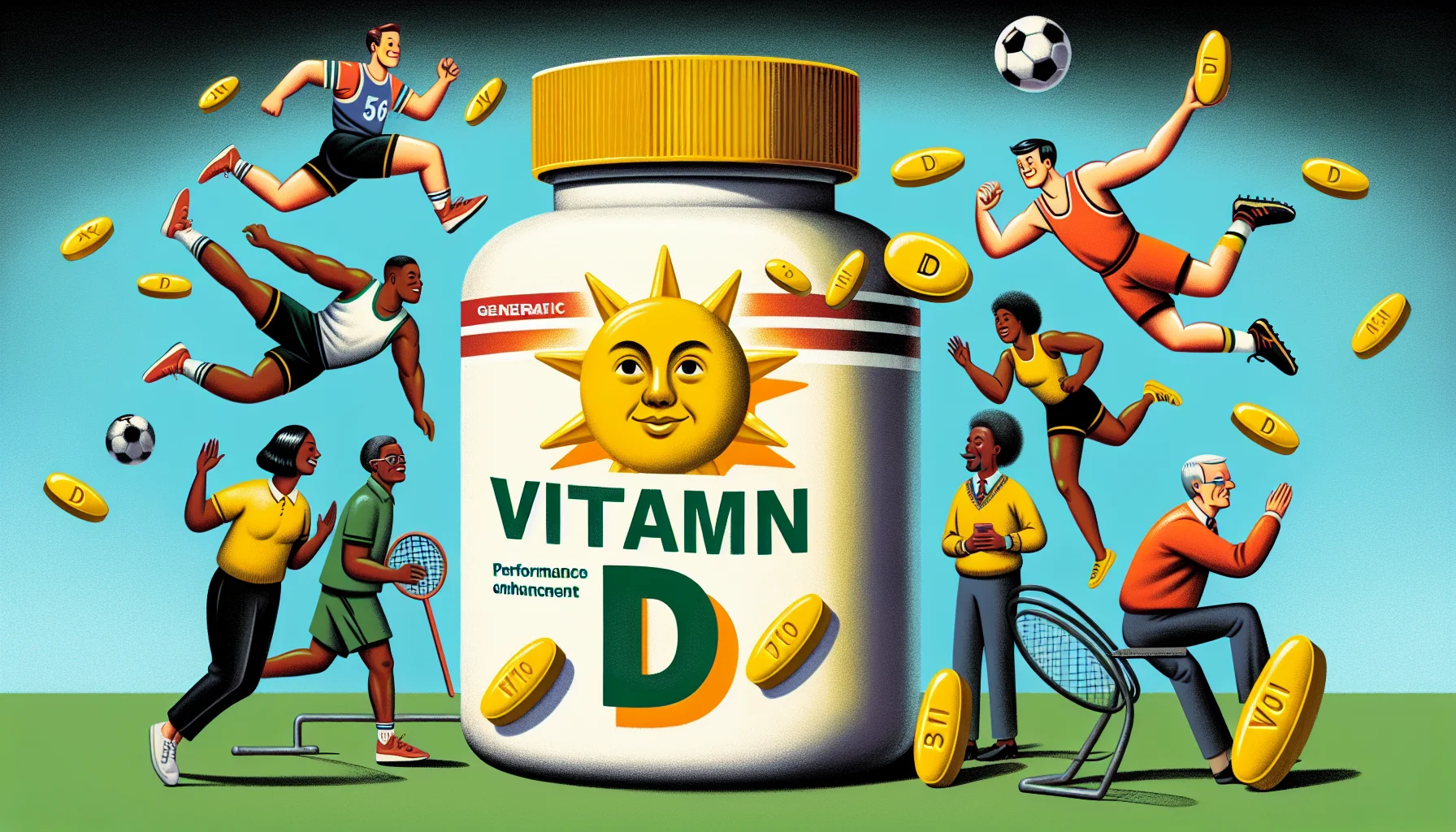Cvs vitamin d Quiz
Test Your Knowledge
Question of
The Essential Guide to Vitamin D and Sports Performance
Vitamin D plays a crucial role in sports and physical activities, influencing overall health and athletic performance. It is essential for maintaining bone health, aiding in the absorption of calcium, and supporting muscle function. Adequate levels of Vitamin D can help enhance strength, reduce inflammation, and improve immune function, which are vital components for athletes and individuals engaged in regular physical activity. Furthermore, Vitamin D has been linked to improved exercise capacity and recovery rates, making it a key nutrient for optimizing sports performance and reducing the risk of injuries.
Understanding Vitamin D
Vitamin D is a fat-soluble vitamin that plays a crucial role in the absorption of calcium and phosphorus, making it essential for the maintenance of healthy bones and teeth. Unlike other vitamins, Vitamin D functions like a hormone, and every cell in the body has a receptor for it. It can be obtained from sun exposure, food, and supplements. When your skin is exposed to sunlight, it synthesizes Vitamin D from cholesterol. However, due to the risk of skin cancer from too much sun exposure, many people opt for dietary sources or supplements to meet their Vitamin D needs. Foods rich in Vitamin D include fatty fish like salmon and mackerel, fish liver oils, and fortified foods like milk, orange juice, and cereals. Vitamin D's role in the body extends beyond bone health; it is also important for immune system function, muscle health, and inflammation reduction. Ensuring adequate levels of Vitamin D is crucial for overall health and well-being.
Vitamin D Benefits for Athletes
- Improves Muscle Function
- Enhances Strength
- Supports Bone Health
- Boosts Immune System
- Reduces Inflammation
- Improves Heart Health
- Enhances Recovery from Exercise
- Increases Physical Performance
How to Get Your Vitamin D
Vitamin D is crucial for bone health, immune function, and more. You can obtain Vitamin D in several ways, including through your diet, by taking supplements, and through exposure to sunlight. Foods rich in Vitamin D include fatty fish like salmon and mackerel, cheese, and egg yolks. For those who may not get enough Vitamin D through diet alone, supplements are an accessible option. Many pharmacies and health stores offer a variety of Vitamin D supplements. Lastly, sunlight exposure can help your body produce Vitamin D naturally. Spending time outdoors in the sunlight for short periods can significantly contribute to your Vitamin D levels.
Recommended Vitamin D Intake for Optimal Sports Performance
| Age Group | Low Activity Level | Moderate Activity Level | High Activity Level |
|---|---|---|---|
| Children (1-13 years) | 600 IU | 800 IU | 1000 IU |
| Teens (14-18 years) | 600 IU | 800 IU | 1000 IU |
| Adults (19-70 years) | 600 IU | 800 IU | 2000 IU |
| Seniors (>70 years) | 800 IU | 1000 IU | 2000 IU |
Choosing the Right Vitamin D Supplement
When it comes to selecting the right Vitamin D supplement, there are several factors to consider. First, understand the difference between Vitamin D2 and D3; the latter is often recommended for its better absorption in the body. Dosage is another important aspect, which should ideally be determined based on your current Vitamin D levels and under the guidance of a healthcare professional. Additionally, pay attention to the form of the supplement, whether it's in pills, liquid, or gummy form, to match your preference and ease of consumption. For a wide selection of options, CVS offers a variety of Vitamin D supplements, catering to different needs and preferences. Always remember to check for third-party certifications to ensure product quality and safety.
Incorporating Vitamin D into Your Sports Nutrition Plan
For athletes looking to enhance their performance and overall health, incorporating Vitamin D into their nutrition plan is essential. Vitamin D plays a crucial role in bone health, immune function, and muscle recovery. To ensure adequate Vitamin D intake, start by spending 10-15 minutes in the sun daily, as sunlight is a natural source of Vitamin D. Additionally, include Vitamin D-rich foods in your diet such as fatty fish, egg yolks, and fortified foods like milk and cereals. For those with limited sun exposure or dietary restrictions, considering a Vitamin D supplement may be beneficial, but always consult with a healthcare professional before starting any new supplement regimen. Monitoring your Vitamin D levels through regular check-ups can also help tailor your nutrition plan to meet your specific needs, ensuring you stay at the top of your game.












